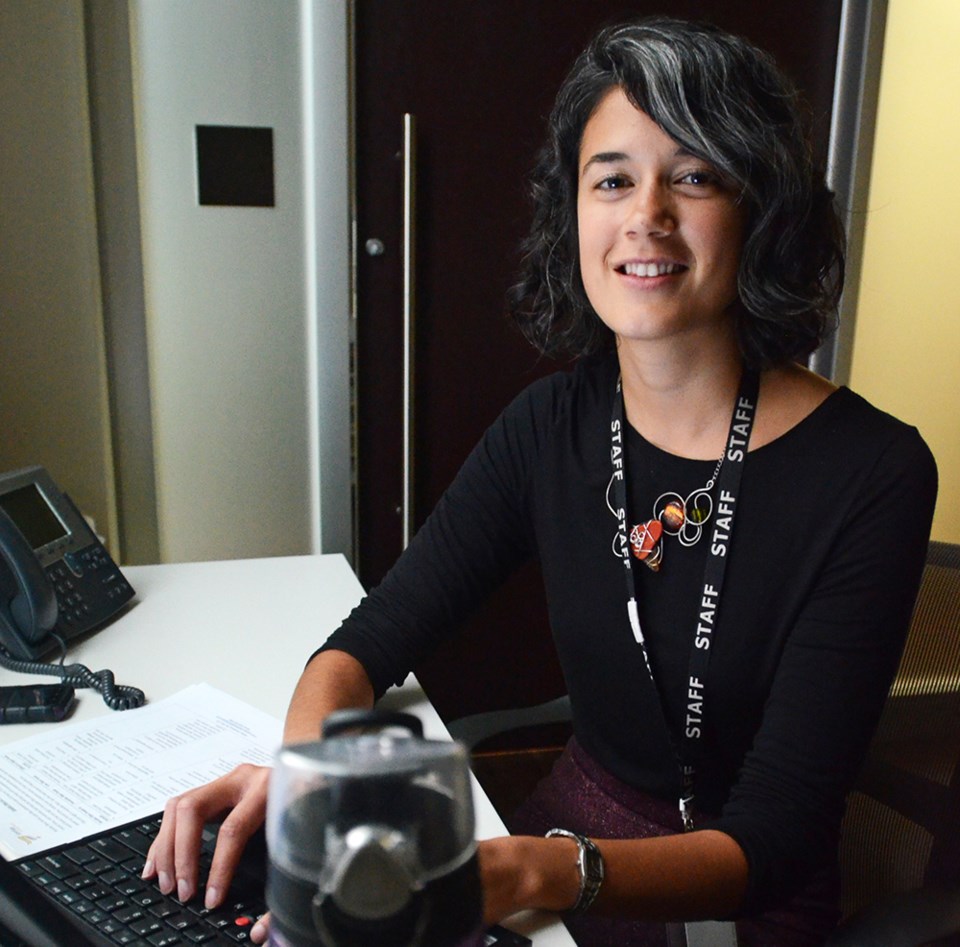Fortius Sport & Health dietitian Ashley Charlebois isn’t afraid to put her money where her mouth is when it comes to diet advice.
Four years ago, when she found out about a diet (the low FODMAP diet) that was helping people in Australia deal with irritable bowel syndrome, she tried it on herself three times just to make sure it worked.
“I did it to see what challenges my clients would go through, so I could better provide a plan for them,” she said.
Having herself grown up with IBS (which she describes as a medical umbrella term for “we don’t know what’s wrong with you”) Charlebois was pleasantly surprised the diet helped her too.
“I thought I had it figured out a long time ago,” she said.
Turned out she had a wheat intolerance she hadn’t discovered before.
Charlebois began accumulating her blend of personal and research-based nutrition know-how as a kid working through her own digestive issues.
“I found that using nutrition and changing my diet helped so much, and that doctors at the time weren’t able to help me,” she said.
She has since converted those early experiences into a career, earning a bachelor’s degree in dietetics at McGill and a master’s in exercise physiology and nutrition at UBC.
It was at UBC that the Ottawa native began to veer off the beaten path usually pursued by dietitians.
Her studies focused on a program of nutrition and exercise to help people with chronic kidney disease.
In the exercise physiology lab, she started connecting with a lot of athletes.
She has since worked with a wide range of sports organizations, including a Canadian men’s Olympic field hockey team, the Vancouver Whitecaps, Skate Canada, Gymnastics B.C. and Cycling B.C.
Given that resumé, Fortius was a great fit for her when the centre opened in May 2013, especially since she was eager to work as part of a team.
“A fully integrated team approach is way more effective than one person on their own,” she said. “I’ve worked in a couple of other multidisciplinary clinics, which are different than interdisciplinary clinics. It’s a bunch of different health professionals that work under the same roof but they don’t actually collaborate, and there’s no point really. I might as well work on my own.”
Charlebois brought her expertise in digestive health with her when she joined the centre, so on any given day she might be helping an elite soccer player optimize performance with the right foods, at the right times, in the right combination, or she might be helping someone pinpoint food intolerances and sensitivities to help manage Chrohn’s disease, celiac disease, IBS or ulcerative colitis.
The job isn’t without its challenges.
It’s tough for Charlebois to watch high-level athletes put so much effort into training only to be held back by an inadequate diet.
“If they ate properly, they would see so much improvement in their performance,” she said.
Alternatively, there’s nothing more rewarding for Charlebois than helping people who feel they’re too sick to lead healthy and active lives get on their feet and start meeting their goals.
“We can do so much with their diets,” she said.



